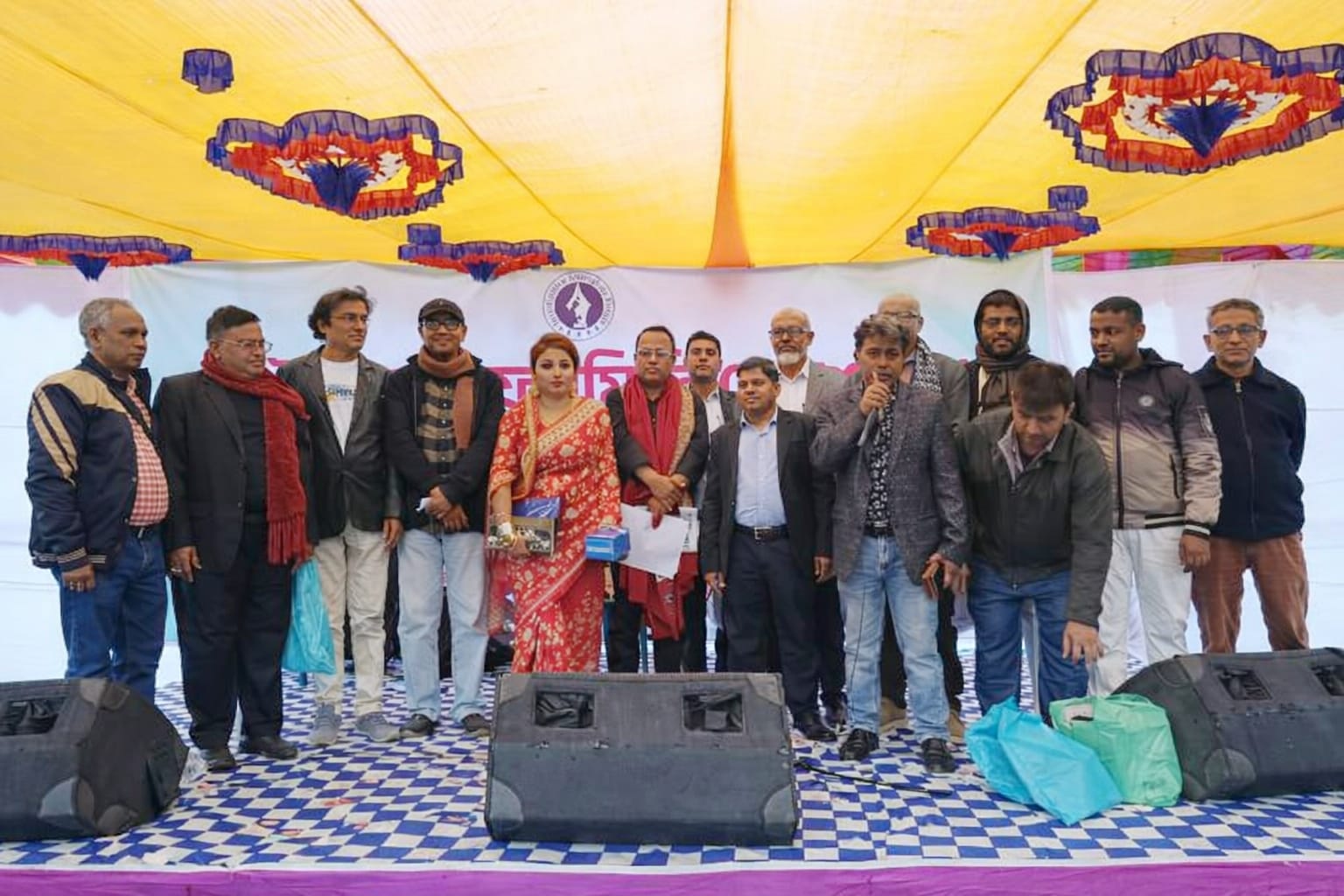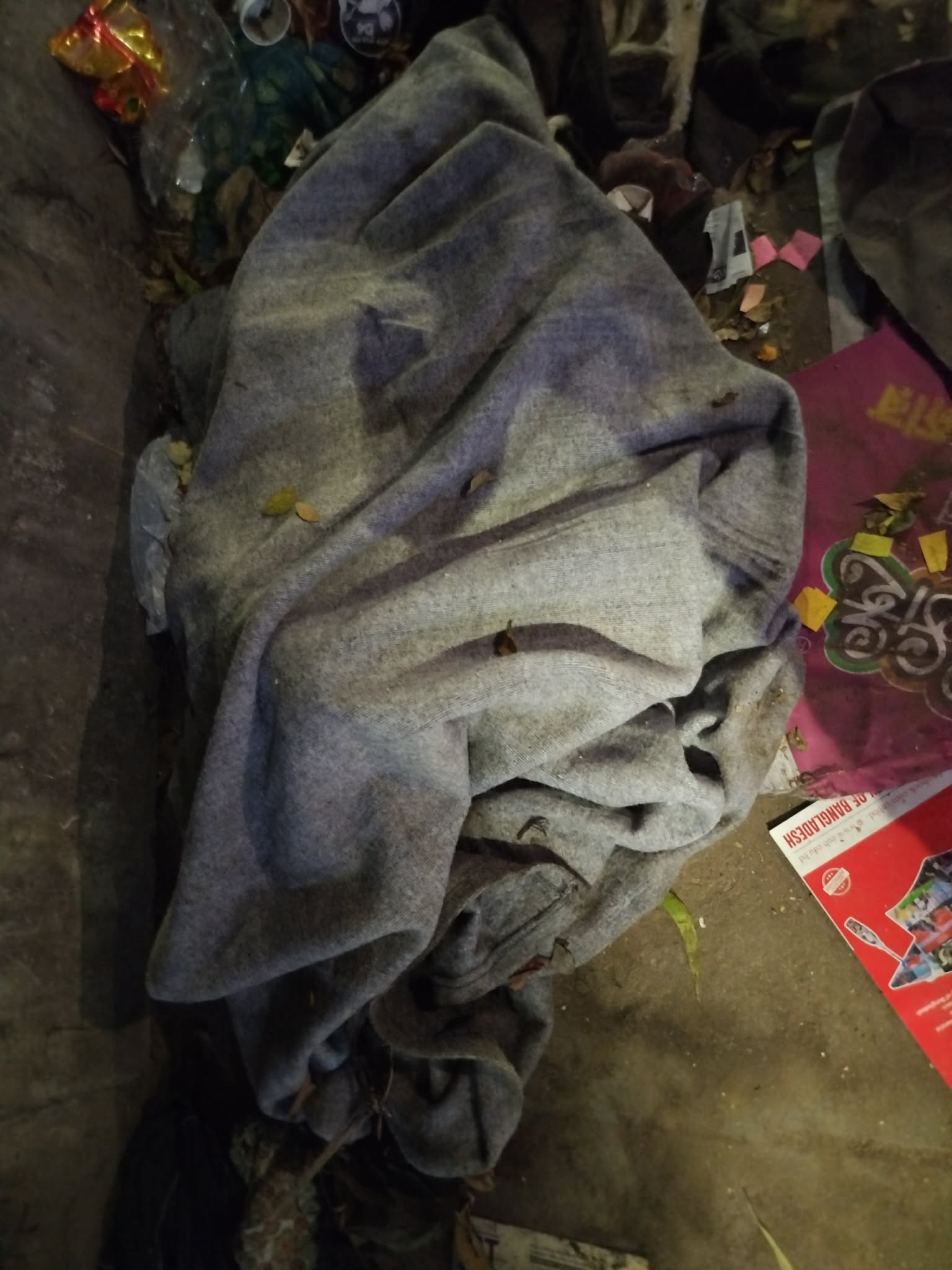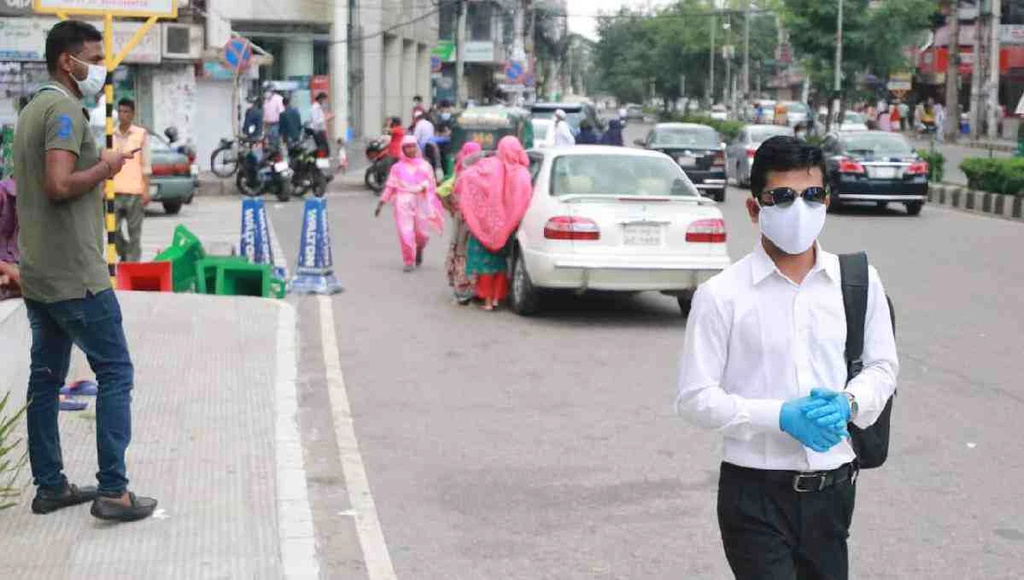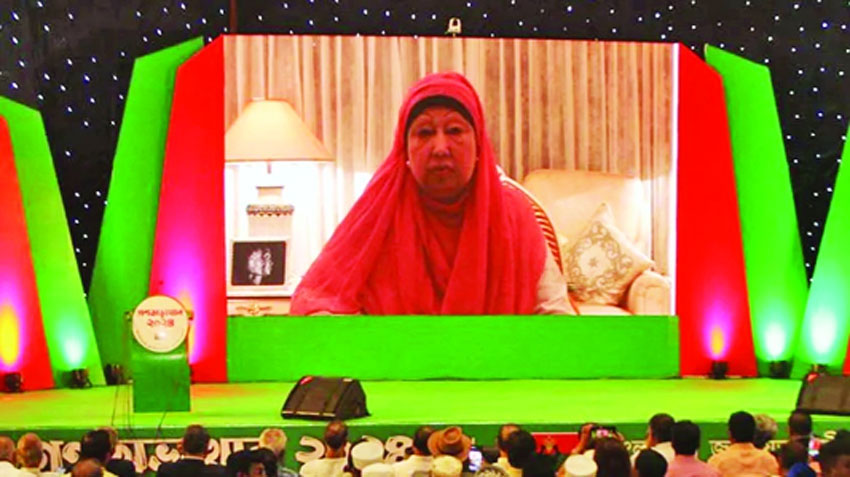- 2021-07-07 01:15:45
- LAST MODIFIED: 2026-02-15 14:29:26
Following SC verdict, Jadukata River buzzing with lives and livelihoods again
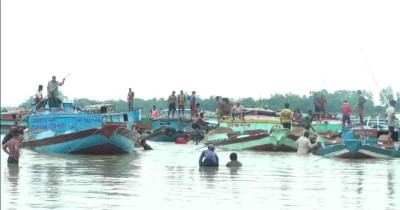
Photo Collected :
The Jadukata is one of the 54 transboundary rivers flowing between India and Bangladesh. Originating from the Meghalaya Hills of India, it flows into Bangladesh through Sunamganj's Tahirpur and into Bishwamvarpur Upazilas.
Known for its scenic beauty, the Jadukata is a reservoir of natural resources. Mountains standstill near the river and the sky seems to lean on the mountains. Barik tile sits on top of the river.
A Supreme Court decision in June designated two balumahal (sand quarries) in Jadukata. Jadukata-1 is flowing beside Barik tila. Shimul Bagan, the garden of cotton trees, is on the other side, and this is where another sand quarry called Jadukata-2 has been designated.
The ruling of the Supreme Court finally allowed for sand to be lifted from the river again, after being barred for years over environmental concerns. The area from which sand can be legally mined has been very strictly demarcated.
Additionally, it was stipulated that no heavy-duty machinery could be used in the extraction of sand. Since June 12, workers have been lifting sand from the river again, but now by hand in an environment-friendly way as no one is allowed to extract sand with mining explosives.
The precious natural resource in the river is the unlimited sand. Locals say that the world's best sand is found here, and certainly, the sand from Sylhet’s hilly rivers enjoys a very good reputation in the construction industry. Like any fast-developing country witnessing construction booms and is in high demand in Bangladesh.
The living standards of the workers in the Haor area developed around the Jadukata. Almost all working people lost their jobs because of the non-settlement of leases due to legal complications and lawsuits in the high court.
Visiting the area today, the area is buzzing again with workers around the two designated quarries. Thousands of workers are lifting sand in small boats. The sand is being sold to big traders for cash.
About 50,000 workers have returned to their old jobs. Each worker is earning Tk 1,500 per day.
Shukur Ali, a laborer from Miyarchar, said, "I was in a lot of trouble because of the pandemic as the river remained closed. I wanted to run away from home. But in the end, I didn't have to go anywhere as the river opened. I can earn Tk 1,500 by lifting sand from the river."
He also said his family is spending their days happily now.
"I used to spend half a day starving as the river was closed. I am happy now with my family after opening the river," said Alamgir of Ghagtia village.
Every worker UNB spoke to expressed the same. It means the environmentalists’ concerns may be legitimate, but the court verdict has provided a final settlement that all parties must accept.
Besides, numerous people, including boat owners and traders, are earning their livelihoods in some way or other from the river. With the people of the area having money to spend, trade has increased in the markets around the river. Store owners say they are doing up to 50 times more business.
In the evening, the workers buy fish and meat from the market as they wish. The prices of the products are also increasing in the market but the workers do not care about that. They have pent-up demand to be met. This is how the economy is growing in the area.
Lessee Selim Ahmed said, "The workers of Haorpar were living an inhuman life as the Balu Mahal was closed due to some litigation. At the end of the legal battle, the Supreme Court returned a verdict in my favor. Now I get a legal lease. And I have nothing else to worry about lifting sand from the river."
Deputy Commissioner Jahangir Hossain said the lessees have been made aware of the boundaries for sand mining in the Jadukata River.
"When I visited the area, I saw the workers here mining sand from the river with super enthusiasm. Those who had long been unemployed, it is very good to see them active now," he said.
Upazila Nirbahi Officer Md Raihan Kabir, who personally demarcated the boundaries of the two quarries, said that the only source of livelihood for the people of Harper is the Jadukata River. “Workers are earning by working in this river. The workers are doing well with their families by working in an environment-friendly way,” he said.
He has also been vigilant against any violations of the court’s stipulations. On June 21, the UNO led a mobile court that fined two boats Tk 50,000 each for straying outside the boundaries set for sand mining.

